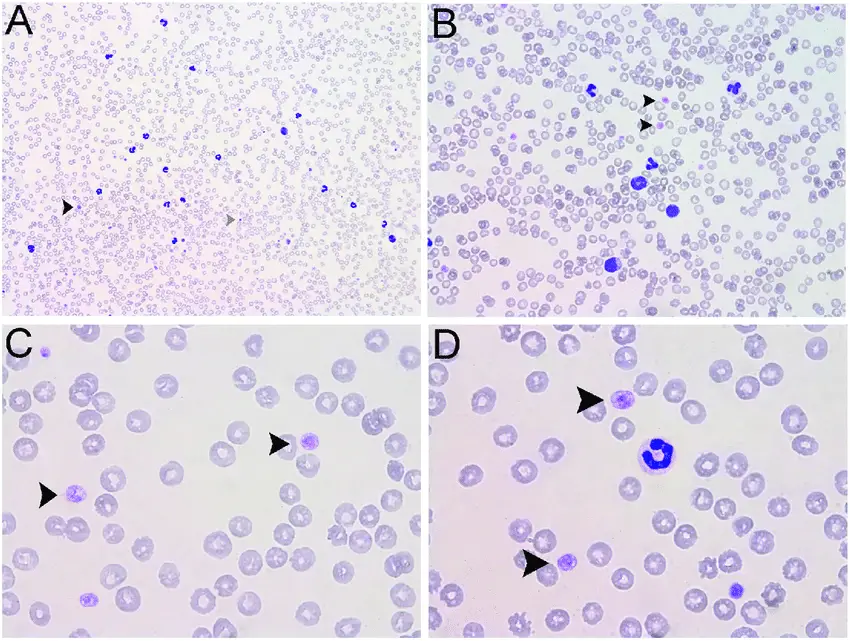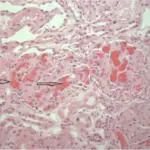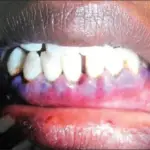Bernard-Soulier syndrome is a condition caused by an inherited deficiency of the platelet membrane glycoprotein complex Ib-IX.
What is the Pathology of Bernard-Soulier Syndrome?
The pathology of Bernard-Soulier syndrome is:
-Etiology: The cause of Bernard-Soulier syndrome is reduced expression of the GPIb/IX/V complex.
-Genes involved: Unknown.
-Pathogenesis: The sequence of events that lead to bernard-soulier syndrome results from the reduced expression of the GPIb/IX/V complex on the surface of the platelets, the receptor for von Willebrand factor (vWF). The diminished expression is the deficient binding of vWF to the platelet membrane at vascular injury sites, subsequent to faulty platelet adhesion.
-Morphology: The morphology associated with Bernard-Soulier syndrome shows giant platelets.
-Histology: The histology associated with Bernard-Soulier syndrome shows thrombocytopenia.
How does Bernard-Soulier Syndrome Present?
Patients with bernard-soulier syndrome typically have no gender prevalence present at an age range of any age. The symptoms, features, and clinical findings associated with bernard-soulier syndrome include easy bruising, petechial rash, gastrointestinal bleeding, nosebleeds, purpura, and menorrhagia.
How is Bernard-Soulier Syndrome Diagnosed?
Bernard-soulier syndrome is diagnosed through CBC count, peripheral smear indicates giant platelets and thrombocytopenia, bleeding time- prolonged. Flow cytometry and platelet aggregation studies may be helpful.
How is Bernard-Soulier Syndrome Treated?
Bernard-soulier syndrome is treated through supportive care, broad-based treatment-desmopressin acetate, antifibrinolytic agents for episodic bleeding. Platelet transfusion may be needed.
What is the Prognosis of Bernard-Soulier Syndrome?
The prognosis of Bernard-soulier syndrome is poor.



